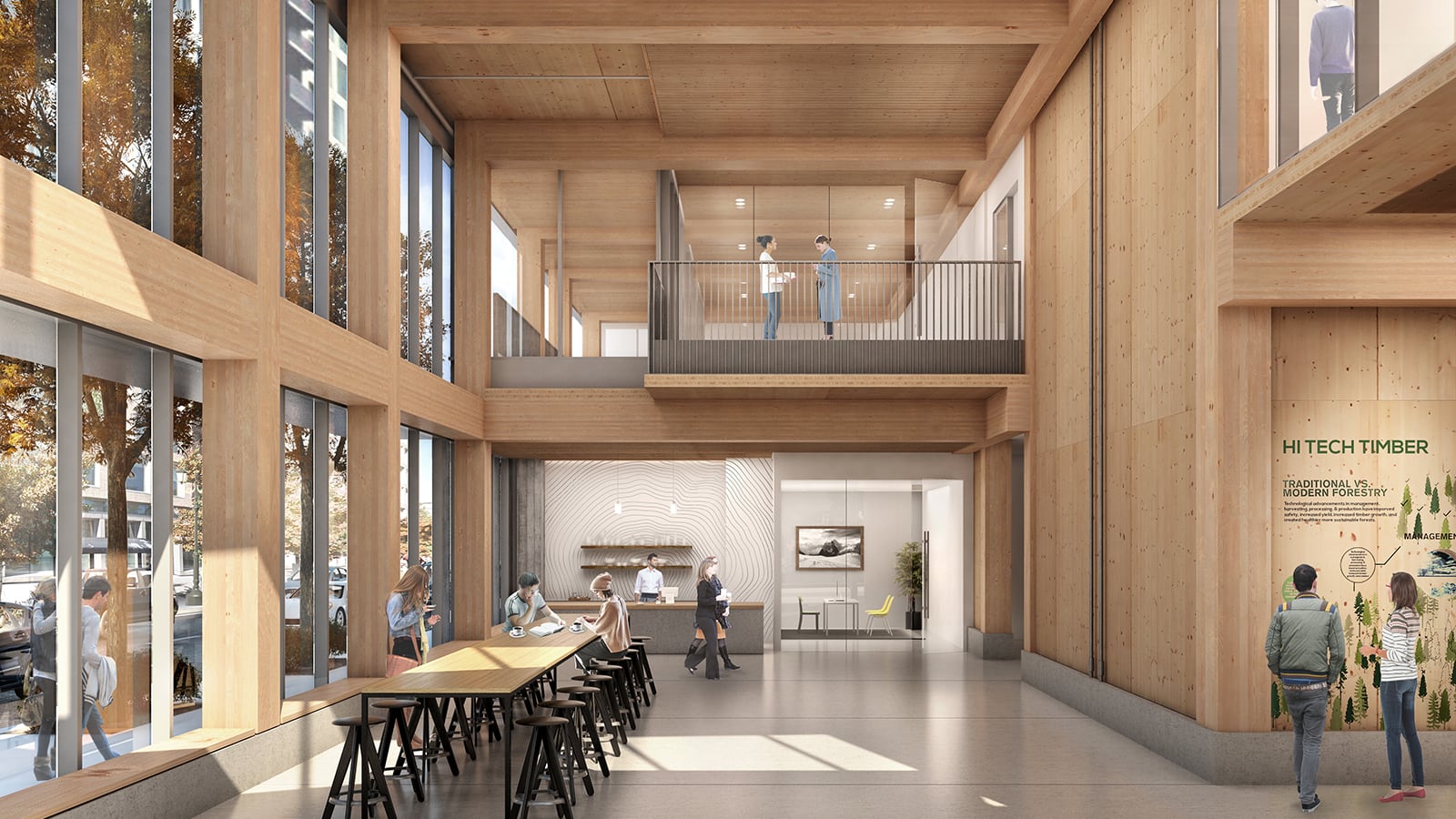Portland Mayor Ted Wheeler announced Nov. 7 he wants to use public housing dollars to build an 11-story building with an innovative design.
The building would be the nation's tallest made of wood and serve as a public relations boon for the timber industry, but it's also attracting critics because it would be far more expensive to build than a traditional concrete and steel structure.
"This might be a good project if we were not in a housing emergency," says Jo Ann Hardesty, a candidate for the Portland City Council. "I'm just concerned we get distracted by the shiny new object."

As Wheeler prepared to take office in fall 2016, he pledged to slash the high price the city pays to build affordable housing.
At the time, WW reported that city-subsidized apartments cost up to $514 per square foot to purchase and renovate—more than double the rate of constructing market-rate housing.
Wheeler's response to that story was decisive.
"We have to reduce costs and get more supply on the market as quickly as possible," Wheeler told WW then. "You can't just declare a housing emergency and keep doing the same thing."
But a year later, Wheeler's choice for Portland's next affordable housing project comes with a even higher price tag: $651.43 per square foot.

The $29 million high-rise in the Pearl District, called Framework, would be the tallest building in the country to use an innovative wood product called cross-laminated timber, or CLT, instead of steel and concrete.
It will be a pricey test case in which two-bedroom apartments measuring just 660 square feet will cost $567,389 each to build, according to the county housing authority Home Forward's calculations, which include a portion of the common area attached to each apartment.
Wheeler defends his decision to back Framework, arguing that the city is paying for only part of the building, along with other public and private funders.
The city will chip in $6 million in urban renewal funds toward the nearly $29 million project. Another $19.5 million will come from other government sources—Home Forward and the federal low-income housing tax credit program—and $1.5 million from private investment and other public grants.
Not only does the project mark a reversal of Wheeler's pre-inauguration position, but the Portland Housing Bureau also chose to ignore its own cost guidelines. Those call for the city not to spend public dollars on two-bedroom units that cost more than $354,500 an apartment. The price per unit at Framework is more than $200,000 higher.
"The cost of affordable housing is still way too high," Wheeler tells WW. "These units are expensive. [But] the good news is that the city is only making small contributions."
Others are alarmed by the price.
"It's fine for a private investment," says Hardesty. "I do not think that it's fine for addressing the housing crisis."

The Housing Bureau defends the project for a number of reasons: the advantages of getting units built quickly, the prime location of the project at Northwest 10th Avenue and Glisan Street, and the dividends of the new CLT technology.
"In addition to the many known benefits of pioneering cross-laminated timber locally," says Housing Bureau spokeswoman Martha Calhoon, "this new technology has the potential to innovate faster, more efficient affordable housing development in the future."
The timber industry believes cross-laminated timber will revive logging in Oregon, directly creating as many as 6,000 jobs in the state. Its backers also argue it's a more efficient building material, greener than concrete and faster to build with. And cross-laminated timber buildings could be safer in earthquakes than those constructed of other materials.
"Framework is a catalytic project which will serve as a national case study," says Anyeley Hallova, a partner at Project^, the building's developer. "Equally important, Framework addresses social equity by providing…affordable housing in the Pearl District."
Along with the high price tag, Framework faces another problem—backers haven't secured all the public funding needed to complete the project.
When Home Forward asked the Portland Housing Bureau to contribute to the project, the Aug. 28 application shows it expected to collect $2 million from Gov. Kate Brown's reserve fund.
But Brown spokesman Bryan Hockaday tells WW no money will be available.
"There's no funding coming directly from the governor's office," says Hockaday.
Home Forward spokesman Tim Collier acknowledges the application "overstated where we were at."
Meanwhile, the City Council hasn't been given a chance to vote on the funding of Framework with city dollars. Instead, Wheeler acted alone.
In response to criticism last summer of the sluggish pace of city-funded housing projects, Wheeler relaunched a program called Fast Starts, in which developers with shovel-ready projects could apply for funding. The City Council voted to approve the Fast Starts, but Wheeler has picked Framework as the first project.
Yet Framework's $2 million funding gap raises questions whether it's really shovel-ready.
So far, only one of Wheeler's colleagues has publicly endorsed the expenditure. Commissioner Chloe Eudaly says the city's small contribution makes Framework "a reasonable investment on our part." The other commissioners didn't comment by deadline or said they hadn't decided.
